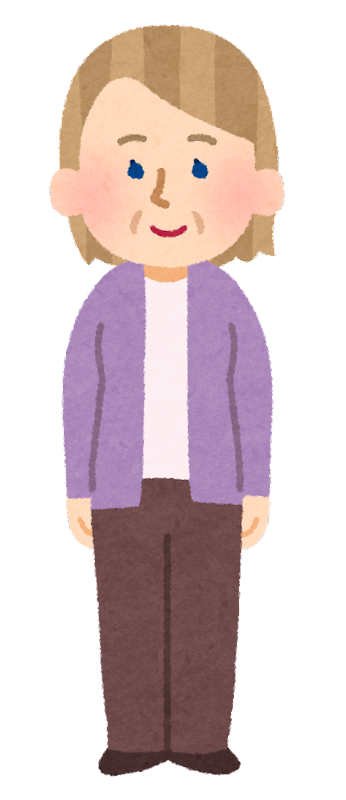ライフハックとしてではなく、英語学習にも極めて有用なのが、著名人が10分程度のプレゼンを行うTEDです。
TED Talksとは、あらゆる分野のエキスパートたちによるプレゼンテーションを無料で視聴できる動画配信サービスのことです。10年ほど前にサービスが開始されてから、政治、心理学、経済、日常生活などの幅広いコンテンツが視聴できることから人気を集めています。
RareJob English Lab
TEDは4000を超える膨大な数の動画があります。しかし慣れないうちは、動画の探し方や視聴のコツが分かりませんよね。この記事では、数多くのTEDを見てきた管理人(塩@saltandshio)が、心を揺さぶられたトークをあらすじと一緒にご紹介します。
ビジネス英会話を効率よく身につけたい方におすすめスクール
シェーン英会話
シェーンは1977年の創業以来、ネイティブ講師が英語を英語で教える「直接教授法」を採用しています。首都圏におけるスクール拠点数は、ネイティブ講師の英会話スクールでNo.1。駅から近いスクールが多いので通いやすく時間を有効に使えます。
スピークバディ パーソナルコーチング
1日1時間の短期集中トレーニングで、あなたの英語力向上をコーチが全力でサポートします。あなたの英語の世界が、劇的に変わります。
ロザリンデ・トーレス:優れたリーダーになる条件
現在、1日ワークショップから企業の研修プログラムまで、様々なリーダー養成プログラムがあります。でも、たいていは、あまり役に立ちません。ロザリンデ・トーレスは、真のリーダーを見てきた25年の経験を語り、将来の経営者たちに向け、3つのシンプルながら重要な問いを投げかけます。将来も生き残るために必要な問いです(約9分)。
[PR]無料体験レッスン実施中!全国208校、創業40年の老舗英会話スクール【シェーン英会話】時代遅れのリーダー養成プログラム
各社で行われているリーダー養成プログラムが、どれほど有効なのか。その問いに対する答えを出すため4千社を対象に調査したところ、なんと58%もの会社が「重要なリーダーの役割を担える人財が、大幅に不足している」と回答しました。
多くの会社で社内外の訓練プログラムや、評価査定、コーチングといったものを用意しているにも関わらず、なぜ半分以上の会社で優秀なリーダーを輩出できていないのでしょうか。それもそのはずです。現在のリーダーシッププログラムは昔のモデルを起用しており、現代に通用しないものばかりだからです。
ロザリンデ・トーレスは25年間にも及ぶ自身の仕事を通じて、どういう人が優秀なリーダーと呼ばれるのか見てきました。すると、優れたリーダーと呼ばれる人たちにいま、ある気がかりな傾向があることに気が付きます。
つまり、こうした(リーダーシッププログラムの)努力の甲斐もなく、いろんな方が同じような憂き目にあっているのです。
I noticed that, despite all the efforts, there were familiar stories that kept resurfacing about individuals.
一体、優秀なリーダーと呼ばれる人たちになにが起きているのでしょうか。
[PR]無料体験レッスン実施中!全国208校、創業40年の老舗英会話スクール【シェーン英会話】リーダーが育たない!
いま優秀なリーダーと呼ばれる人や、かつて優秀なリーダーと呼ばれた人たちが、現在多くの悩みを持っています。そのどれもが、会社の問題にも直結する深刻なことばかりでした。
- 素質のあったリーダー候補が、新しい部署に異動後に失敗。取り返しのつかない損失を会社に与える。
- 優秀な会社と呼ばれて多くのリーダーがいるにも関わらず、重要な戦略を任せられる人は一人だけ。
- ベテランのリーダーたちが時代の変化についていけず、会社の規模を縮小する事態に陥っている。
このような現状をみて、ロザリンデ・トーレスは疑問に思います。
なぜ、こうしたリーダーシップ・ギャップが、リーダー養成強化の流れとは裏腹に拡大の一途をたどっているのか?優秀なリーダーが成長できるのは、何が違うからなのだろう?
Why are the leadership gaps widening when there’s so much more investment in leadership development? And what are the great leaders doing distinctly different to thrive and grow?
この疑問について頭がいっぱいになり、さらにリーダーたちの悩みを聞くのが辛くなってしまったロザリンデ・トーレスは、一念発起して仕事を辞めます。そして、1年かけて世界中の企業がどのようなリーダーシッププログラムが実践されているのか調査することにしました。
すると、彼女は優れたリーダーたちにはある共通点があることがわかります。
[PR]知って得する、知らないと損をする!すぐに役立つ相手に合った「伝え方」のコツ!万国共通、優秀なリーダーの共通点
各国で多くのリーダーを見たロザリンデ・トーレスは、どのようなリーダーが現代で力を発揮しているかを見ました。すると、彼らにはいくつかの共通点があったのです。そのひとつが、一見すると敵とも思えるような人まで巻き込んでいたことです。
現在は、デジタル化や透明性も増しているため、過去の手法がまるで役に立ちません。さらに、情報の流れや技術革新のスピードも速く、何をやるにしても複雑な基盤が必要になっています。そのため、昔ながらのリーダーシッププログラムでは優れたリーダーになることは出来ないのです。
事実、伝統的な評価手法―限られた360度評価や時代遅れの実績評価では不当に高い評価がされ、実際以上にリーダーになる準備ができているように本人も勘違いをしかねません。
In fact, traditional assessments like narrow 360 surveys or outdated performance criteria will give you false positives, lulling you into thinking that you are more prepared than you really are.
では、どうすれば現代において優れたリーダーになれるのでしょうか。それには3つの条件があるとロザリンデ・トーレスは言います。
[PR]検定試験合格者累計140万人!スマホ対応☆国家資格ほか資格取得ならSMART合格対策講座3つの21世紀の優秀なリーダーになる条件
21世紀にふさわしいリーダーシップを備えている人とは、一体どんな人でしょうか。それは、以下の3点を実践している人です。
- 自らのビジネスモデルや人生に来たる変化を予想しているか?
- プライベートや仕事上の人脈を多様化させているか?
- 過去に自分を成功に導いたやり方を捨てられるか?
自分のスケジュール帳を見てみましょう。あなたは最近、誰と時間を過ごしてどんな話をしましたか?どこに旅行をして、どんな本を読みましたか?そうして培った経験をもとに、いますぐにでも行動に起こせる準備と決断をしているでしょうか。
優秀なリーダーは下ばかり見ていません。曲がり角の先まで見て、単に現状に対応するのではなく自ら将来を形作るのです。
Great leaders are not head-down. They see around corners, shaping their future, not just reacting to it.
多くの人と知り合う人は、多くのチャンスにも恵まれます。さまざまな垣根を越えて多くの人と知り合うことは、幅広く世界を知ることにも繋がり、複雑な問題に対しても多面的な方法で解決策を導くことが出来るようになるでしょう。
そして、過去の栄光にとらわれることなく、常に新しいことにトライアンドエラーを繰り返すことが出来るリーダーは、会社にあたらしい風を吹き込むことで、時代にとらわれず、置いていかれることもありません。
優秀なリーダーとは、広い視野を持った行動力のある人といえるでしょう。
[PR]すべての社会人のための業務効率アップ講座【速読解Biz】まとめ:仕事は段取り八分と仕事二分!
優秀なリーダーは、あえてまわりと違うことをする人です。
ある優秀なリーダーから聞いたのですが、大きな影響を与えることを成し遂げられるのは、感情面でのスタミナを鍛え、自分の新しいアイデアがナイーブだとか、無謀だとか、単におかしいと他人に言われることに耐えられるようになったときだそうです。
And one of the leaders shared with me the fact that the most impactful development comes when you are able to build the emotional stamina to withstand people telling you that your new idea is naive or reckless or just plain stupid.
さらに重要なのは、こうした面白いことをしようとする人たちは、いつもの顔馴染みではなく、たいていは違った考えを持ちながらも共に面白いことをしようとしている人たちだという事です。
さいごに、多くの優秀なリーダーを見てきたロザリンデ・トーレスですが、男女ともに世界共通で同じだったのは、どの人も常に準備していることでした。彼らは過去の成功体験に縋りつくことなく、今日この日の現実のため、そしてまだ見えない明日のあらゆる可能性に準備していたのです。
あなたは過去にとらわれていませんか?前を見つめて未来を向いて歩いて行きましょう。大丈夫、あなたなら出来るはずです。
英語全文
What makes a great leader today? Many of us carry this image of this all-knowing superhero who stands and commands and protects his followers. But that’s kind of an image from another time, and what’s also outdated are the leadership development programs that are based on success models for a world that was, not a world that is or that is coming.
<全文を読む>▼クリック▼
Now, I’ve spent 25 years of my professional life observing what makes great leaders. I’ve worked inside Fortune 500 companies, I’ve advised over 200 CEOs, and I’ve cultivated more leadership pipelines than you can imagine. But a few years ago, I noticed a disturbing trend in leadership preparation. I noticed that, despite all the efforts, there were familiar stories that kept resurfacing about individuals. One story was about Chris, a high-potential, superstar leader who moves to a new unit and fails, destroying unrecoverable value. And then there were stories like Sidney, the CEO, who was so frustrated because her company is cited as a best company for leaders, but only one of the top 50 leaders is equipped to lead their crucial initiatives. And then there were stories like the senior leadership team of a once-thriving business that’s surprised by a market shift, finds itself having to force the company to reduce its size in half or go out of business.
Now, these recurring stories cause me to ask two questions. Why are the leadership gaps widening when there’s so much more investment in leadership development? And what are the great leaders doing distinctly different to thrive and grow? One of the things that I did, I was so consumed by these questions and also frustrated by those stories, that I left my job so that I could study this full time, and I took a year to travel to different parts of the world to learn about effective and ineffective leadership practices in companies, countries and nonprofit organizations. And so I did things like travel to South Africa, where I had an opportunity to understand how Nelson Mandela was ahead of his time in anticipating and navigating his political, social and economic context. I also met a number of nonprofit leaders who, despite very limited financial resources, were making a huge impact in the world, often bringing together seeming adversaries. And I spent countless hours in presidential libraries trying to understand how the environment had shaped the leaders, the moves that they made, and then the impact of those moves beyond their tenure. And then, when I returned to work full time, in this role, I joined with wonderful colleagues who were also interested in these questions.
Now, from all this, I distilled the characteristics of leaders who are thriving and what they do differently, and then I also distilled the preparation practices that enable people to grow to their potential. I want to share some of those with you now.
(“What makes a great leader in the 21st century?”)
In a 21st-century world, which is more global, digitally enabled and transparent, with faster speeds of information flow and innovation, and where nothing big gets done without some kind of a complex matrix, relying on traditional development practices will stunt your growth as a leader. In fact, traditional assessments like narrow 360 surveys or outdated performance criteria will give you false positives, lulling you into thinking that you are more prepared than you really are. Leadership in the 21st century is defined and evidenced by three questions.
Where are you looking to anticipate the next change to your business model or your life? The answer to this question is on your calendar. Who are you spending time with? On what topics? Where are you traveling? What are you reading? And then how are you distilling this into understanding potential discontinuities, and then making a decision to do something right now so that you’re prepared and ready? There’s a leadership team that does a practice where they bring together each member collecting, here are trends that impact me, here are trends that impact another team member, and they share these, and then make decisions, to course-correct a strategy or to anticipate a new move. Great leaders are not head-down. They see around corners, shaping their future, not just reacting to it.
The second question is, what is the diversity measure of your personal and professional stakeholder network? You know, we hear often about good ol’ boy networks and they’re certainly alive and well in many institutions. But to some extent, we all have a network of people that we’re comfortable with. So this question is about your capacity to develop relationships with people that are very different than you. And those differences can be biological, physical, functional, political, cultural, socioeconomic. And yet, despite all these differences, they connect with you and they trust you enough to cooperate with you in achieving a shared goal. Great leaders understand that having a more diverse network is a source of pattern identification at greater levels and also of solutions, because you have people that are thinking differently than you are.
Third question: are you courageous enough to abandon a practice that has made you successful in the past? There’s an expression: Go along to get along. But if you follow this advice, chances are as a leader, you’re going to keep doing what’s familiar and comfortable. Great leaders dare to be different. They don’t just talk about risk-taking, they actually do it. And one of the leaders shared with me the fact that the most impactful development comes when you are able to build the emotional stamina to withstand people telling you that your new idea is naive or reckless or just plain stupid. Now interestingly, the people who will join you are not your usual suspects in your network. They’re often people that think differently and therefore are willing to join you in taking a courageous leap. And it’s a leap, not a step. More than traditional leadership programs, answering these three questions will determine your effectiveness as a 21st-century leader.
So what makes a great leader in the 21st century? I’ve met many, and they stand out. They are women and men who are preparing themselves not for the comfortable predictability of yesterday but also for the realities of today and all of those unknown possibilities of tomorrow.
Thank you.
<閉じる>
\ ほかにも気になるトークが満載! /








